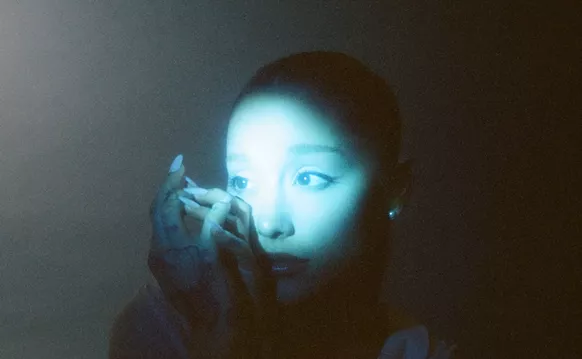This time, Gallo plays Bud Clay, a Formula II motorcycle racer with a pretty golden bike, a sturdy black van, and no apparent life beyond them. After forcing us through prolonged, amateurish footage of a race in New Hampshire, the writer-producer-director-editor-star positions Clay face to face with a pretty, underage service-station cashier named Violet (Anna Vareschi). He tells her, à la Led Zeppelin, that he's going to California and fairly easily (if pathetically) convinces her to join him. Then he steals a few kisses and drives off without her, sticking us in the passenger seat for what may be the most authentic -- and anesthetizing -- drive across America ever filmed.
Whatever Gallo learned working hand in hand with Hollywood on Buffalo '66, he has purposely unlearned here. This is beyond minimalist. Shots don't merely linger; they loiter. With his designer stubble and ornate forelocks, Gallo's almost a dead ringer for Viggo Mortensen's Aragorn here (minus the chin dimple), and he makes damned sure we spend about half the movie observing angles of his face, in endless tight close-ups, driving and brooding. Until his movie's climax -- pun inevitable -- the remainder involves mostly road footage from coast to coast, hypnotic by default, sometimes with cool songs and scoring but a million miles from artful.
This wouldn't be such a burden if the dialogue and performances didn't also sag. Gone are Buffalo's edgy riffs of "Ginger ale is pop!" and "spanning time," replaced by what feels, at best, like a drama workshop -- sans drama and sans work (Christina Ricci, you are missed). Gallo's theme here is pathos, and he handily manages that, but his reedy readings fall remarkably flat. It's as if Billy, his lucky loser from Buffalo, has morphed into a loveless, inarticulate lump of... well, Clay, really. He still craves being cradled like a baby, but he's moved significantly closer to death's door.
Along his lonesome road, give or take the white light and white heat of a test ride in Utah's Bonneville Salt Flats, Clay encounters a few broken blossoms. After wooing and dumping Violet, he encounters a sad woman named Lilly (Cheryl Tiegs) at a rest stop, and they sit in sad silence and share some sad close-ups together before he sadly leaves her. When he makes it to Vegas, chirpy little chippies try to offer him a f... um, a "date," and he briefly, hesitantly chooses one named Rose (Elizabeth Blake), but only for a chaste whirl around the block and a sack of deep-fried crap before she too is back at the curb.
Clay's favorite flower, his only flower, is Daisy (Chloë Sevigny), for whom the wretch quests like a dipshit Don Quixote for his dumb-ass Dulcinea. All we know is that she's somewhere amid the insanity of Los Angeles and that, given the hype attending this movie, he will find her. We also know that when they connect, in a bland motel room, she will pull down his trousers and go down... in movie history.
One of the most hilarious bits of film criticism I've ever read was by Manohla Dargis, who, in her review of Leos Carax's Pola X, went out of her way to call a penis "poignant." Apparently this is also supposed to be the point of seeing Gallo's pole in Sevigny's mouth. Without the brief, graphic scene, the movie would probably get a PG rating. With it, it gets our attention. It's an utterly unnecessary stunt, but, hey, it's a pure moment. And now there's no doubt about why Gallo calls his co-star "extremely talented."
Anyway, let's rise above the silly "controversy," its backlash, and Gallo's pugnacious public outbursts. Despite its formalistic failings and truly absurd porn moment, there's a morbidity here that feels quite genuine, and after the movie is over, it amounts to rough-hewn poetry. Gallo needs to check his facts regarding the actual lifespans of bunnies (his eponymous one here, visited briefly in Daisy's old home, symbolizes sweetness beyond human grasp), and both of his macho crotch-rockets prove shrug-worthy, but he really bull's-eyes heartbreak. His movie may be reviled for its outrageous navel-gazing or, worse, celebrated for its cheap sensationalism, but ultimately, he achieves something relatable and human. He creates an emotional something out of a wasteland of nothing, an arduous feat for any artist.





